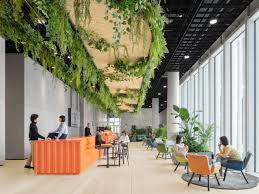Seoul, South Korea’s bustling capital, is not just a hub for technology, culture, and entertainment but also a vibrant center for business and corporate life. The term Seoul Office encapsulates the essence of office culture in this dynamic city. This article delves into what makes the Seoul office environment unique, its challenges, and the evolving trends shaping its future.
The Traditional Seoul Office Environment
In the traditional Seoul office, the influence of Confucian values is still palpable. Respect for hierarchy and seniority remains a cornerstone of the workplace culture. Employees often start their day early and finish late, reflecting a strong work ethic and dedication to their roles. Punctuality, diligence, and a collective spirit are highly valued traits.
The concept of hoching or titles, is crucial in Seoul offices. Addressing colleagues by their titles rather than 서울오피 their first names signifies respect and acknowledgment of their status. This practice reinforces the hierarchical structure that is typical of many South Korean companies.
The Impact of Technology
Seoul is renowned for its technological advancements, and this is vividly reflected in its office environments. Offices are equipped with cutting-edge technology, from high-speed internet to smart office solutions that enhance productivity and convenience. Many companies adopt digital tools for project management, communication, and collaboration, ensuring that they stay competitive in a global market.
The rise of technology has also facilitated remote working and flexible hours, particularly in the wake of the COVID-19 pandemic. Many Seoul-based companies have adopted hybrid work models, allowing employees to work from home part-time. This shift has led to a reevaluation of traditional office norms and a greater emphasis on work-life balance.
Work Culture and Social Dynamics
The social dynamics within Seoul offices are unique and complex. Team-building activities, known as hoesik), are common. These gatherings, often held at restaurants or karaoke bars, help foster camaraderie and team spirit. Participation is generally expected, as it is seen as an extension of professional life.
However, there is a growing awareness of the need for boundaries between work and personal life. Younger generations, in particular, are advocating for a more balanced approach, where personal time is respected, and long working hours do not impinge on family life and leisure.
Challenges in the Modern Seoul Office
Despite the advancements, Seoul office culture faces several challenges. The high-pressure environment can lead to stress and burnout. Mental health issues are a growing concern, and companies are beginning to recognize the importance of addressing them. Initiatives such as counseling services, stress management workshops, and wellness programs are becoming more prevalent.
Another significant challenge is gender inequality. While progress has been made, women often encounter barriers to advancement and face a persistent gender pay gap. Efforts are underway to create more inclusive workplaces, with policies promoting gender equality and diversity.
The Future of Seoul Office
The future of Seoul offices lies in a delicate balance between tradition and innovation. As globalization and digital transformation continue to reshape the business landscape, Seoul offices are likely to become even more dynamic and flexible. Embracing these changes while preserving the positive aspects of traditional values will be crucial.
In conclusion, Seoul Office represents more than just a physical space; it embodies a culture that is deeply rooted in South Korean society yet constantly evolving. Understanding this unique office culture provides valuable insights into the broader trends and shifts within the business world of Seoul, a city that is perpetually on the cutting edge of progress

Leave a Reply